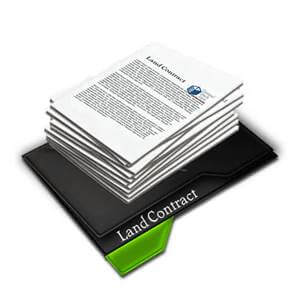Condominium Mortgage Guidelines
Financing a condominium is a little different from financing a single family home.
- Rules govern the allowable percentage of rental units, amount of commercial space, and the number of units behind on their dues.
- The developer must have turned the management of the property to a homeowners association (HOA).
- The management must be in good shape financially and the development must be in good shape and marketable.
Lenders are picky about condominiums because condominium mortgages are riskier than loans secured by single family homes.
Prequalify for a condominium loan now.
Buying a Condominium vs a Single Family Home

When you purchase a single family home, lenders review the home appraisal to verify its value and to make sure that it’s safe, habitable and marketable. They need to know that if they foreclose and have to sell the property that they can recoup most or all of the loan balance.
Condominiums are riskier because there are common areas that belong to all owners. The homeowners association is responsible for collecting dues from homeowners and using them to maintain, repair and insure these common areas.
The homeowners association board is also responsible for enforcing the rules (called CC&Rs) of the development. These might concern things like noise, use of facilities like a gym or pool, or whether can rent out your unit or own a large dog.
Condominiums can become bad investments if their HOAs are not run properly. If they fail to collect enough dues to keep their grounds and facilities in good working order, the property values will likely drop. If their boards fail to enforce rules, homeowners may leave en masse or just fight incessantly and sales prices can plummet.
Because of these factors, mortgage lenders impose stricter guidelines when they lend on condos. Fees are higher because of the added risk and because underwriters must review condo financials and CC&Rs as well as the appraisal.
See today’s mortgage rates.
Warrantable vs Non-Warrantable Condos
Fannie Mae and Freddie Mac use the term “warrantable” to describe condominium projects and properties that meet their guidelines for financing. Fannie Mae and Freddie Mac refer to condo projects and properties that don’t meet their guidelines as “non-warrantable.”
Non-warrantable condos are more challenging to finance.
Warrantable Condominium Mortgage Guidelines

Fannie Mae condo warrantability
Fannie Mae defines a condo as warrantable if:
- No single entity owns more than the following number of units in the project
- Projects with 5-20 units: 2 units
- Projects with 21+ units: 20% of units
- For projects with fewer than five units, project review is waived and there does not appear to be a limit to the number of units a single entity can own. Individual lenders may impose their own restrictions, however.
- The unit is a detached condo (shares no walls with other units but is legally classified as a condo).
- For investment properties, at least 50% of the units are owner-occupied or second homes
- There is no occupancy limitation for owner-occupied transactions
- Fewer than 15% of the units are 60 days or more in arrears with their association dues
- The homeowners association (HOA) is not named in any lawsuits
- Commercial space does not exceed 35% of the total square footage
Freddie Mac condo warrantability
The only difference between Fannie Mae and Freddie Mac is that Fannie Mae waives a project review for condos with fewer than five units and does not restrict single entity ownership.
Freddie Mac’s rules restrict a single entity to one unit in a project with fewer than five units. Single entities can own a maximum of:
- 2-4 unit project: 1 unit
- 5-20 unit project: 2 units
- 21 units or more: 25% of the units in the project
So a project that qualifies with Fannie Mae may not be eligible with Freddie Mac, and vice versa.
Government Condominium Mortgages
Government-backed loans are usually more flexible than conventional loans, and VA and FHA condo rules follow this pattern.
The FHA and VA maintain lists of approved condominium developments. However, if the condo you want to buy is not already on those lists, you may still be able to finance it. Your lender can probably help you get a “spot” or one-time approval for a unit within an unapproved development if it meets the agency guidelines.
Some of the new basic requirements for an FHA condo loan now include:
- The borrower must meet “standard” FHA mortgage guidelines
- At least half of a project’s unit must be owner-occupied
- In a newly-built project, at least 70% of the units must be sold
In general, if Fannie Mae or Freddie Mac have already approved a community, the FHA and VA will allow you to finance a unit there.
Unlike Fannie Mae and Freddie Mac, the FHA and the VA do not add risk-based surcharges for condo loans.

Financing Non-Warrantable Condos Is Possible
It’s harder to finance non-warrantable condos. In general, a condo or co-op unit is considered non-warrantable if:
- The project is not yet completed
- The builder or developer still controls the HOA
- The community allows short-term rentals like Airbnb
- A single person or entity owns more than 10% of all units
- Most occupants are renters and not owners
In addition, a condo unit in a project involved in litigation of any kind is usually “non-warrantable.” This is true whether the community is the plaintiff or the defendant in the suit.
Non-warrantable condo financing is unavailable via Fannie Mae and Freddie Mac, the FHA or the VA.
Condotel and Non-Warrantable Condo Financing
You can finance a non-warrantable condo or even a condotel with Gustan Cho Associates.
Gustan Cho Associates offers condotel and non-warrantable condominium mortgages. 20% down payment is required on non-warrantable condos. 25% down payment is required on condotel financing.
Units must have at least 500 square feet of livable space. They also must have a fully functional kitchen and at least one bedroom. The minimum loan amount is $100,000 and the maximum loan size is $3,000,000. You’ll also need reserves, enough to cover one year of mortgage payments for the condo and any other real estate you are financing.
Borrowers who need to qualify for warrantable and/or non-warrantable condos, please contact us at Gustan Cho Associates at 800-900-8569 or text us for a faster response. Or email us at gcho@gustancho.com. The team at Gustan Cho Associates is available 7 days a week, evenings, weekends, and holidays.
Get a custom mortgage quote for your condo now.




